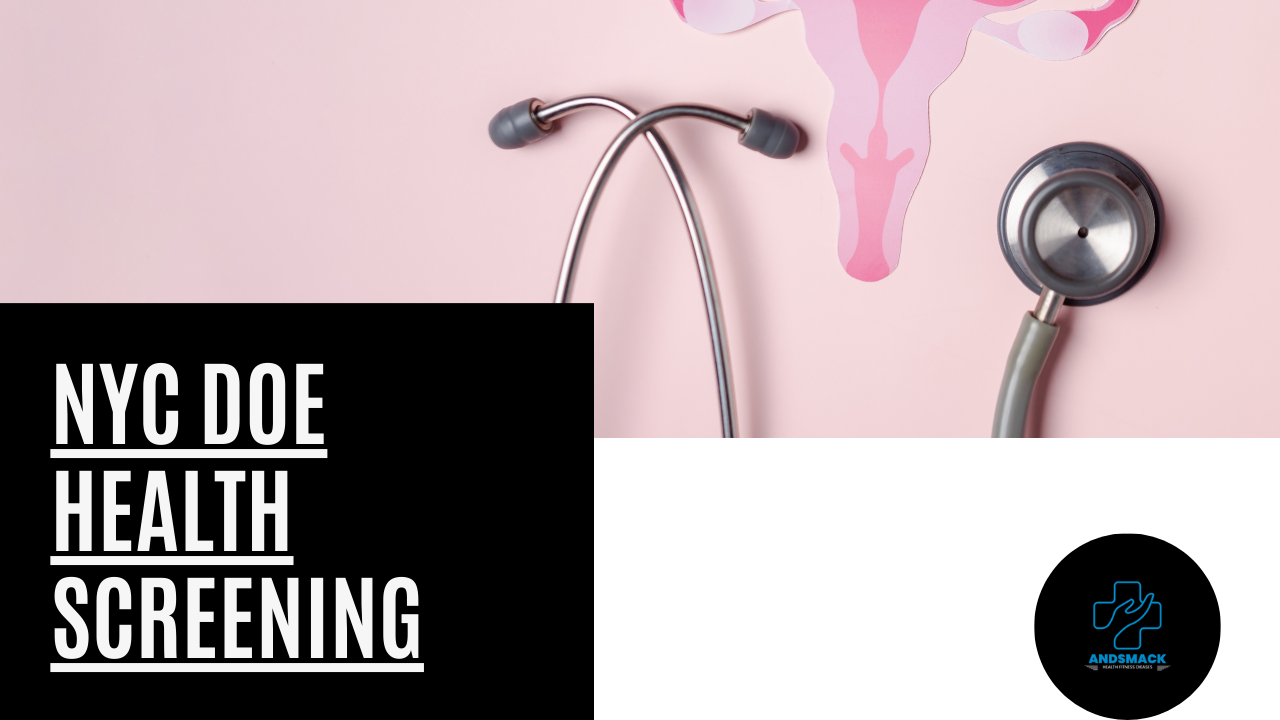 |
| NYC DOE Health Screening: Ensuring a Safe Learning Environment |
Health screenings in the New York City Department of Education (NYC DOE) play a crucial role in maintaining a safe and healthy educational environment for students and staff. Daily health checks have become a fundamental part of the educational routine, contributing to the overall well-being of the school community.
NYC DOE Health Screening Process
The health screening process used by the NYC DOE involves a
thorough assessment of individuals entering educational facilities. This
includes temperature checks, symptom assessments, and reporting procedures for
positive cases. The goal is to identify and prevent the spread of illnesses
within the school community.
Purpose of Health Screenings
The primary goal of health screenings is to protect the
well-being of students and staff. By quickly identifying individuals with
symptoms or elevated temperatures, the NYC DOE can take immediate steps to
prevent the spread of illnesses. This proactive approach creates a safe and
supportive learning environment.
Components of NYC DOE Health Screening
The components of health screenings in NYC DOE include
temperature checks, symptom assessments, and clear reporting procedures for
individuals showing symptoms. This comprehensive approach ensures that
potential cases are identified early, allowing for timely intervention and
protection of the broader school community.
Implementation in Schools
Schools have seamlessly integrated health screenings into
their daily routines. The challenge lies in balancing health measures with the
educational experience. However, the NYC DOE has successfully implemented
measures that prioritize both health and education, creating a harmonious
environment for students and staff.
Challenges and Solutions
Implementing health screenings comes with its set of
challenges, including logistical issues and the need for continuous adaptation.
The NYC DOE addresses these challenges by adopting innovative solutions,
ensuring that health screenings remain effective and feasible for all
educational institutions.
Community Engagement
Community engagement is a crucial aspect of the NYC DOE
health screening process. Involving parents and guardians in the screening
process creates a collaborative approach to ensure the safety of the entire
community. This engagement fosters a sense of responsibility and shared
commitment to the well-being of students and staff.
Impact on Education
While health screenings are essential for maintaining a safe
environment, their impact on education is a significant consideration. Striking
the right balance between health measures and educational continuity is
crucial. The NYC DOE has successfully managed this balance, ensuring that
students receive a quality education while prioritizing their health.
Adaptability and Updates
The NYC DOE health screening process is adaptable to
changing circumstances. Regular updates and improvements are made to the
screening procedures, taking into account the evolving nature of health
challenges. This adaptability ensures that the screening process remains
effective and relevant.
Success Stories
Numerous success stories underscore the effectiveness of
health screenings in the NYC DOE. Cases where early identification led to the
prevention of outbreaks highlight the positive impact of these measures. These
success stories demonstrate the tangible benefits of a proactive health
screening approach.
Feedback Mechanism
A robust feedback mechanism is in place to gather input from
the school community regarding the health screening process. The NYC DOE values
the feedback received and uses it as a basis for continuous improvement. This
iterative process ensures that the screening procedures align with the needs
and expectations of the community.
Community Resources
In instances where individuals receive positive screening
results, the NYC DOE provides ample resources and support. From medical
guidance to community assistance, a network of resources is available to
support affected students and staff. This comprehensive approach ensures that
those in need receive the necessary care and assistance.
Comparison with Other School Systems
Comparing the NYC DOE health screening with measures in
other school systems provides valuable insights. By learning from different
approaches and best practices, the NYC DOE can refine its screening process and
contribute to the broader conversation on health measures in educational
institutions.
Future Outlook
Looking ahead, the future of health screenings in the NYC
DOE is promising. Continuous improvements and potential expansions of the
program are on the horizon. The NYC DOE remains committed to evolving its
health screening process to meet the dynamic challenges of ensuring a safe and
healthy educational environment.
Conclusion
In conclusion, NYC DOE health screenings are a cornerstone
of the department's commitment to the well-being of its school community. By
implementing robust health screening processes, the NYC DOE strikes a balance
between safeguarding health and providing quality education. The success
stories, adaptability, and community engagement highlight the effectiveness of
this approach, ensuring a safe and supportive learning environment.
FAQs
How often are health screenings conducted in NYC DOE schools?
Health screenings are conducted daily as individuals enter
educational facilities.
What happens if someone shows symptoms during a health screening?
Individuals exhibiting symptoms are guided through reporting
procedures, and appropriate measures are taken to prevent the spread of
illnesses.
How does the NYC DOE involve parents in the health screening process?
The NYC DOE actively engages parents through communication
channels, keeping them informed about the health screening process and
encouraging their participation.
Are there resources available for individuals with positive screening results?
Yes, the NYC DOE provides a range of resources and support
for individuals who receive

.png)
.png)
.png)
